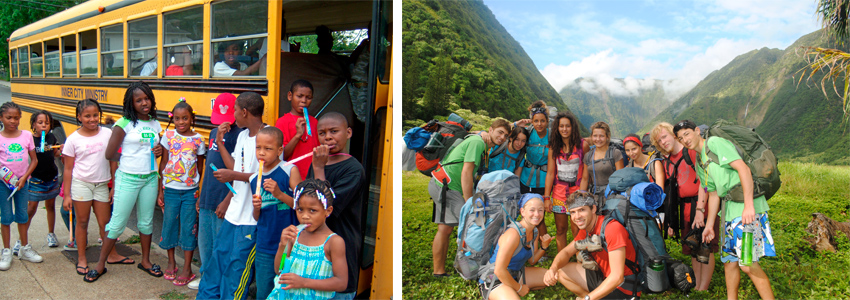
May 29, 2013
|
|
|
When I was coming up, my teachers knew better than to ask us kids to write a pretty essay about our summer vacation. The neighorhood violence that kept us prisoners in our small apartment in the winter didn't take a summmer break. "I don't want you hangin' ontside," my momma said as she headed to work, even when the temperature reached 95 and the sweat ran down your cheeks. If you were lucky, you got to go to one of those free summer programs the city ran. Otherwise, you watched TV, fought with your brothers and sisters or, in my case, babysat more than I ever wanted. - Taneesha, a first-generation college sophomore
The opportunity gap that divides richer and poorer kids during the school yeasr—that leaves so many children behind--does not evapaorate in the "lazy days" of summer. If anything, it heats up. For kids with means, summer may bring sleepaway camp, trips with family, visits to libraries and parks, a chance to learn new skills: the grist for back-to-school essays about summers well spent. For youth like Taneesha, when the school doors close a new scramble may begin, from accessing basic needs like adequate adult supervision (and an air conditioner) to add-ons like recreational or enrichment opportunities.
It should come as no surprise, then, that when school starts again in the fall, low-income students find themselves even further behind.
All young people experience learning losses when they do not engage in educational activities during the summer, decades of research shows. (A caution: "Learning losses" are defined by declines in test scores.) According to the National Summer Learning Association, students typically score lower on standardized tests at the end of summer vacation than they do on the same tests at the beginning of the summer. Most students lose about two months of grade level equivalency in mathematical computation skills over the summer months.
However, low-income students also lose more than two months in reading achievement, despite the fact that their middle-class peers make slight gains. A study from Johns Hopkins University of students in Baltimore suggests that roughly two-thirds of the achievement gap between lower- and higher-income ninth graders could be explained by summer learning loss during the elementary school years. This learning loss is cumulative, summer after summer, the National Summer Learning Association notes. It has a tremendous impact on students’ success, including high school completion, post-secondary education and work force preparedness.
Three years ago, WKCD commissioned youth journalists at Y-Press in Indianapolis to report on the issue of "summer learning loss," including documenting a remarkable summer camp called "City Stories" that Y-Press teens organized for local middle school students. At the end of the second year of the summer camp, Y-Pressers created a one-of-a-kind handbook and curriculum for youth and adults in other cities to use.
For those of you who missed this compelling series of articles, mulitmedia, interviews, and resources—produced by youth who care deeply about inequalities in summer learning—we offer it again.
Note: Sadly, the youth-led news bureau Y-Press closed its doors in December 2012 due to the lack of sustained funding. Originally part of the Children’s Express, Y-Press nurtured young journalists for more than 20 years. Their stories and articles—on local, national, and global topics—appeared every other week in the Indianapolis Star. The Y-Press web site (which is still up) is filled with stories, articles, projects, and multimedia produced by Y-Press journalists over the years.



